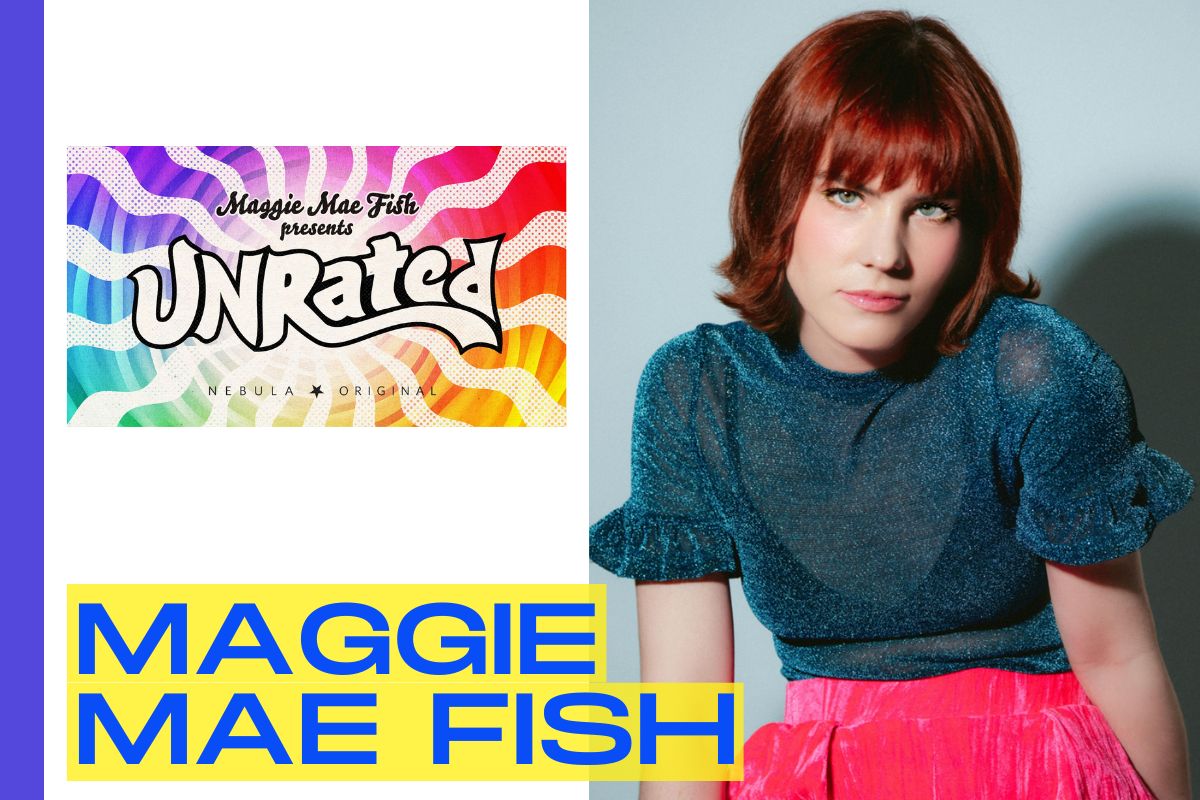Maggie Mae Fish Shares Her Vision of What an ‘Unrated’ Season Two Might Look Like

From poorly written obscure films to the flicks that charm critics and the public alike, Maggie Mae Fish loves movies. This deep affection for filmmaking, combined with Fish’s curiosity on how Hollywood has approached sex, led to her first docuseries, Unrated.
Found exclusively on Nebula, Unrated takes a intimate look at how sexual content has been portrayed in film from the silent era to the sexual thrillers of the present. This is just as weighty a task as it sounds. Equipped with her experience in producing video essays, the writer/actor didn’t limit this exploration to narrating a timeline. The docuseries challenges viewers to think about what sex says and doesn’t say about a film. For example, Fish cited Steven Soderbergh’s criticism of the sexlessness of the MCU as a partial inspiration to the project.
In a long conversation with Fish, she explained to The Mary Sue that because we start watching films so young, we understand the language of it. Fish sees this analysis as “putting words to feelings or putting words to the way that we perceive things.” In this case, the investigation is just into one element of the human experience depicted onscreen. Fish explained that movies work so effectively to create empathy and sympathy in part because of their accessibility.
Not everything comes through in the work, though, and Fish loves that, too. She shared her affinity for watching “bad” movies; it doesn’t matter if it’s “bad” because of the writing or the editor left the boom mic in the shot. While she’ll occasionally talk about bad movies in her video essays, this is done primarily because of her love for filmmaking:
“I love watching people create and I love watching what is created out of that. Even if it’s like a terrible, horrible mess, even if it’s Birdemic, like I always feel just overwhelming joy that it was made to begin with, regardless or not whether you know, it’s worth a critical academic discussion. I think that does help me keep a fresh perspective of elitism in film. […] I think like keeping that in mind, that there is an artificiality of, you know, how highly we regard some of these films. And yeah, you know, having a double feature of an Oscar nominated movie and something from trash horror films.”
Fish on an Unrated season two
Early in our conversation, I inquired as to what a season two would look like. Fish shared that this first series was “little bit of an undertaking” to cover so much film history in six episodes. So, she shared that if she did a season two, she’d want to revisit some of the same eras as season one, only this time, she and her creative partner, Will Reese, would focus on different, lesser-known directors. Much like the comparative analysis videos on Fish’s YouTube channel, the first season masterfully balanced mainstream and more obscure filmmakers. Episodes on specific directors include David Lean, Stephanie Rothman, Paul Verhoeven, Soderbergh, and Cheryl Dunye.
However, in the meantime, Fish shouted out another Nebula creative whose recent series could scratch that itch. That is Broey Dechanel’s three episode series Taboo on Screen. These episodes discuss sex scenes and transgressive humor in film and television. Fish exclaimed, “[Taboo on Screen] is very much a spiritual successor of Unrated. So if you liked Unrated, you’ll love Taboo! […] I’m so glad that Broey is working on her series.”
Per Nebula, “[Taboo on Screen] explores a variety of films that attempt to shed light on the shunned, fringe, and uglier aspects of the human condition—successfully or not.”
This project is continuing to live on in Fish’s productions-in-progress. For example, she’s working on a queer, feminist horror film, and two of the episodes also double as research for that film-in-progress. The directors discussed in Unrated challenged her ideas about point-of-view and femininity on screen.
Hear the full interview here on YouTube:
(featured image: Nebula.tv edited by Alyssa S.)
Have a tip we should know? tips@themarysue.com